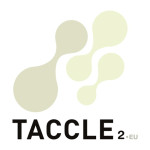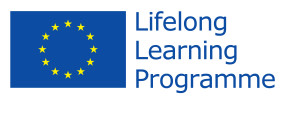The project Adult Digital Literacy (LIDIA) stems from the award attributed by the Fundação para a Ciência e Tecnologia (TIC and Society Network) in response to the proposal of extending the work carried out within the scope of the project TACCLE2– Teachers’ Aids on Creating Content for Learning Environments, a European project in which participated a research team from the Institute of Education of ULisboa participated between 2011 and 2014.
The award allows us to extend the project for another year, this time producing activities geared towards the digital inclusion of adults. In practice, it is based on developing proposals of activities with technologies, for trainers and other social intervention technicians who work with adults, thus preparing them to integrate digital technologies as tools for their practice and providing a meaningful and authentic learning process, adapted to real needs in a “digital society”. In other words, digital technologies taken as useful tools for the development of those that are today considered to be key competencies for lifelong learning.
Thus the target audience of the LIDIA project are Portuguese trainers, animators, educational technicians and social workers who act in formal and non-formal education, contexts in Portugal and whose work context influences audiences that tend to be more excluded from the information society, namely: professionals responsible for the cultural, educational, cultural and social action of local authorities, associations, museums, universities, senior day centers, teachers, etc..
In order to implement the project, the accomplishment of a comprehensive set of activities and training resources to support the intervention with adults in training settings has been planned, with a view to providing the trainers and technicians involved with the required skills needed for the integration of digital technologies in the intended scope: i) the design and elaboration of a manual with proposals for training activities with digital technologies that promote the development of digital skills; ii) the implementation of face-to-face and eLearning courses as an offer of the Institute of Education; iii) the conception and development of an online structure to support the creation of a community of practice for promoting adult digital literacy; iii) a final seminar for the dissemination and sharing of good practices, and the launching of the community, the manual and the eLearning training.





 English
English Nederlands
Nederlands Deutsch
Deutsch Italiano
Italiano Español
Español Português
Português Română
Română Cymraeg
Cymraeg
No comments yet.